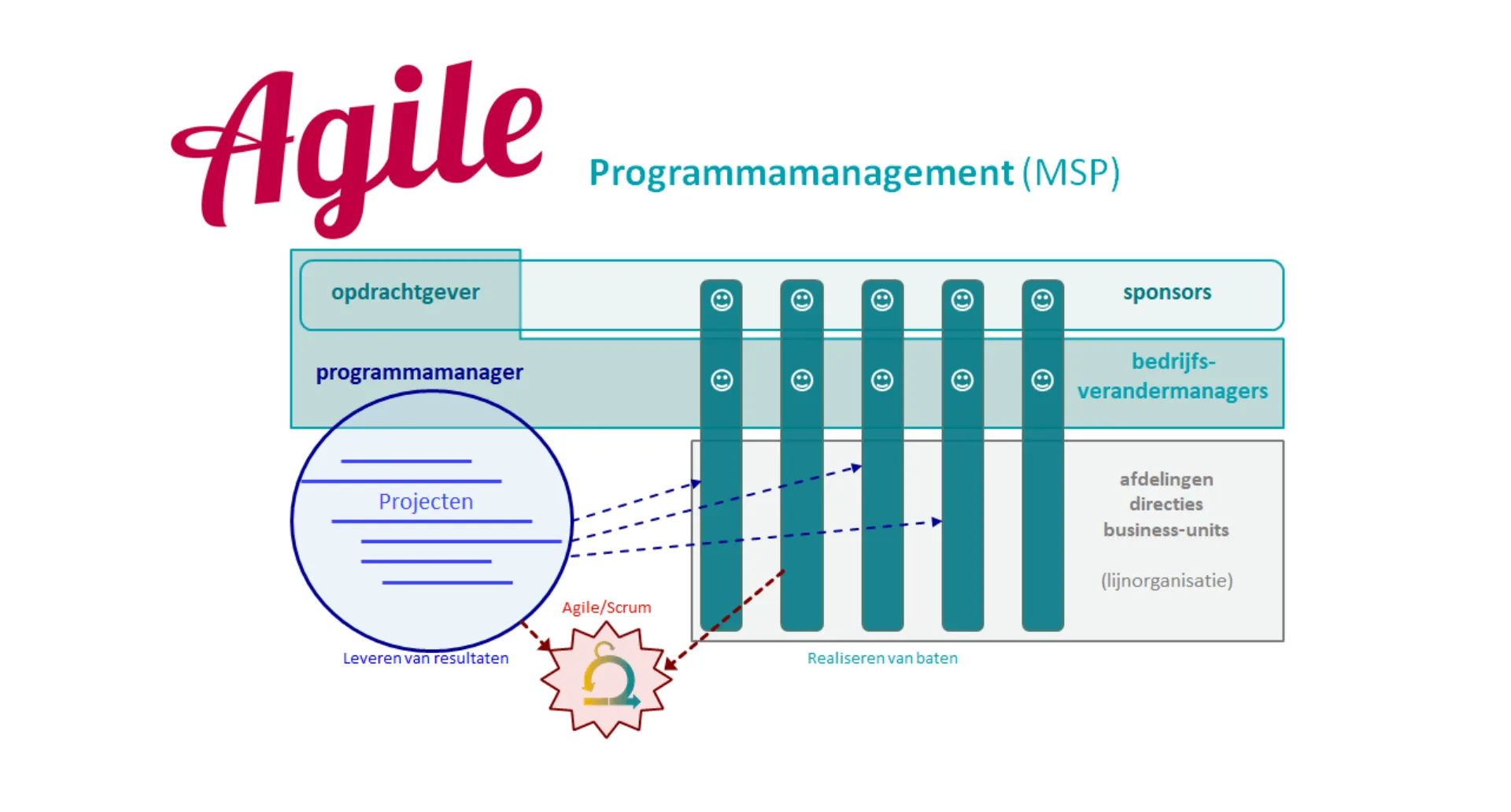Agile MSP: getting a grip on change
Darwin observed this 200 years ago: not the strongest or the smartest but the most agile survives. In times of disruptive technologies and changing business models, complex -and long-term- change requires a more agile kind of management.
So is Agile Programme Management the solution for 'getting a grip' on these changes?

Agile
One of the core elements of Agile working is the early delivery of those results that add the most value. From the change perspective of the client, the wishes from the organisation are translated into tangible results, which are developed short-cycle within a development team.
Every development team (IT) is multidisciplinary and has a so-called Scrum Master (supply) and a Product Owner (demand). Through this close cooperation within this team, supply & demand are connected to the maximum extent. The Scrum Master ensures that the team can optimally build on results and the Product Owner translates the needs from the line organisation into desired functionalities. Based on the product vision, this Product Owner also determines which components are the most important and will therefore be worked on first.
Short-cycle realisation means that teams work in fixed moments of delivering products that are truly 'finished' and add value. By putting these results to use immediately, any assumptions are quickly revealed and the opportunity arises to make timely adjustments. Also, feedback from customers and users can be used to refine these results, thus promoting the ultimate acceptance of the deliverables.
Programme Management
Programme management according to Managing Successful Programmes (MSP) is a proven best practice to realise and secure (change) objectives within the line organisation on the basis of a clear vision. Especially when such change includes a substantial ICT component, programme management is needed to keep a grip on coherent results and objectives.
An important precondition for a successful programme is that the directors from the sponsor group appoint the right (business) change managers from their organisational units (divisions) who -together with their employees- are crucial for the success of the intended change.
However, a well-known pitfall of programme managers is that they often focus on delivering project results, but do not pay enough attention to creating support among the line organisation.

Get a grip on change with Agile Programme Management!
The goal-oriented, guiding character of Programme Management (MSP) lends itself -in our opinion/experience- perfectly to the combination with agile value-driven philosophies like Agile!
Not only to respond to changing environments, but certainly also to reduce the distance between production projects and line organisation through close cooperation within Scrum. A good programme manager not only focuses on result-oriented projects, but also uses soft skills and targeted communication to ensure support and acceptance of the results within the changing line organisation.
So: "without agile programme management no grip on agile change!"
Agile Programme Management: "When projects and line activities are connected iteratively, the greatest benefits are realised incrementally and as early as possible in the process. Focusing on objectives and recalibrating them periodically creates the opportunity to become and remain truly agile as an organisation, even during long-term change processes!
